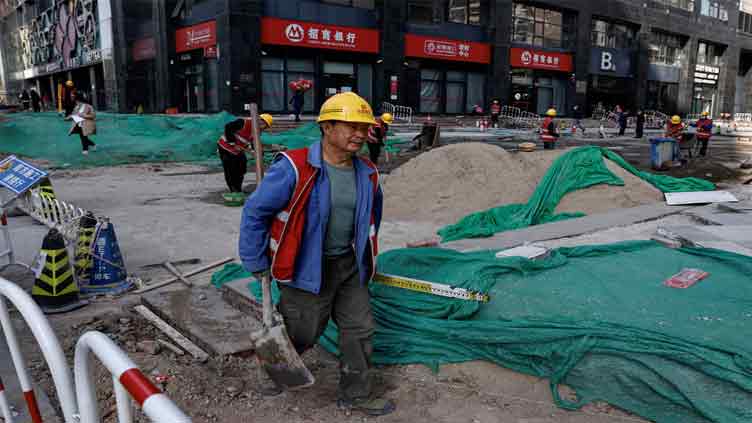IMF upgrades China economic growth forecasts after 'strong' Q1

Business
GDP expected to increase by 5pc in 2024
- Growth would slow to 3.3pc by 2029 due to an ageing population and slower expansion in productivity
- Domestic consumption remains soft and much of that is linked to fragile confidence amid a protracted property sector crisis
- A string of recent economic indicators for April suggest the $18.6tr economy has successfully navigated some near-term downside risks
BEIJING (Reuters) – China's economy is set to grow 5 per cent this year, after a "strong" first quarter, the International Monetary Fund (IMF) said on Wednesday, upgrading its earlier forecast of 4.6pc expansion though it expects slower growth in the years ahead.
The IMF said it had revised up both its 2024 and 2025 GDP targets by 0.4 percentage points but warned that growth in China would slow to 3.3pc by 2029 due to an ageing population and slower expansion in productivity.
"China's economic growth is projected to remain resilient at 5pc in 2024 and slow to 4.5pc in 2025," the global lender said in a statement wrapping up its annual assessment of the world's second-biggest economy for 2024. "Strong Q1 GDP data and recent policy measures" drove the upgrades, it added.
Read more: China is back in Africa and doubling down on minerals
China's economy grew at a faster than expected 5.3pc pace year-on-year in the first quarter, comfortably above analysts' forecast for a 4.6pc gain in a Reuters poll and up from a 5.2pc expansion in the previous quarter.
A string of recent economic indicators for April including factory output, trade and consumer prices suggest the $18.6 trillion economy has successfully navigated some near-term downside risks, but China observers say the jury is still out on whether the bounce is sustainable.
Chinese domestic consumption remains soft and much of that is linked to fragile confidence amid a protracted property sector crisis that is widely seen as the single biggest stumbling block to a full-blown economic recovery.
China retail sales in April, for instance, grew at their slowest pace since December 2022, when Beijing's strict zero-COVID curbs were in place, while new home prices fell at their fastest rate in nine years.
The IMF said it welcomed steps announced by policymakers earlier this month to stabilise China's beleaguered property sector and said that steps "necessary for steering the sector towards a more sustainable path should continue."


